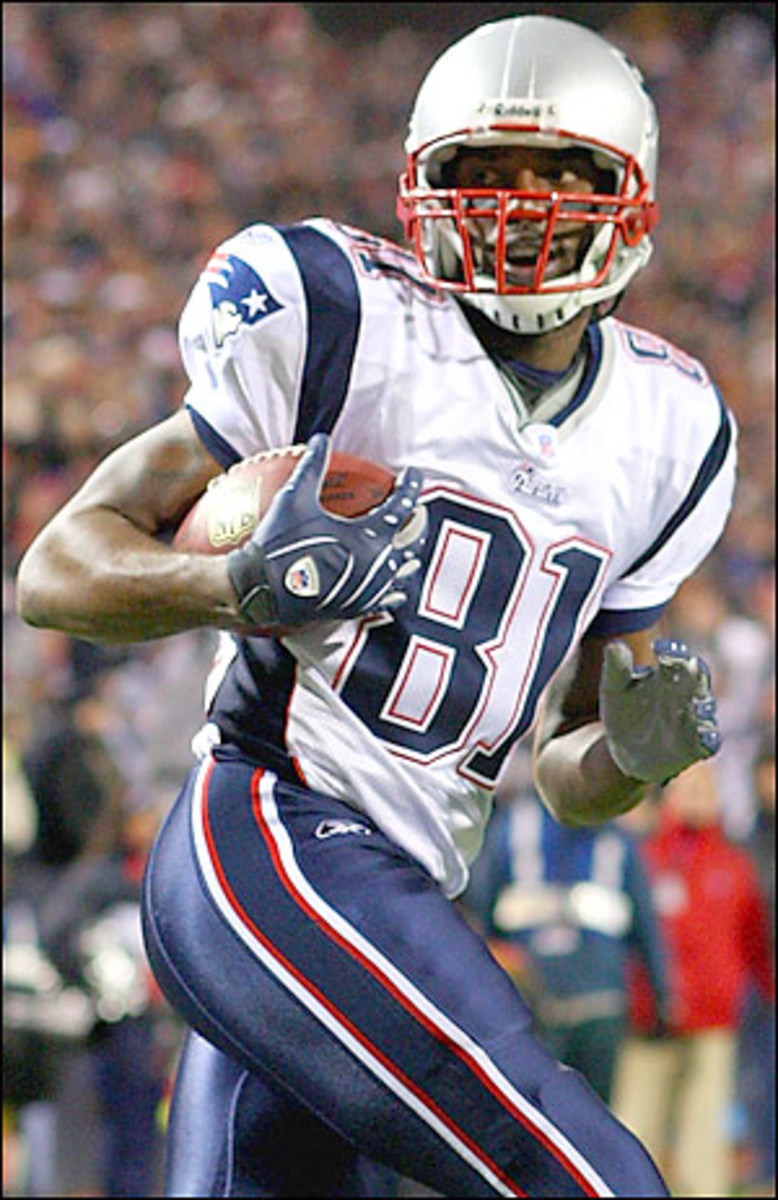No MVP for Moss
A friend in the business raised an interesting question last night: Why isn't Patriots wide receiver Randy Moss getting more consideration for league MVP?
It's a valid question. Moss has been unstoppable in his first season with New England. Through 10 games, he has 66 receptions for 1,052 yards and an astounding 16 touchdowns -- one shy of his personal high and six off the league record Jerry Rice set in 12 games with the 49ers in 1987.
Patriots quarterback Tom Brady has been getting most of the run in MVP discussions, but doesn't Moss deserve a mention considering he has accounted for roughly a quarter of Brady's pass completions, a third of his passing yards and 42 percent of his touchdown passes?
In a word: No.
In two words: Hell no.
I'm not hating on Moss. He's a phenomenal talent and, I believe, the reason the Patriots have a chance to be a Team of the Ages, instead of the latest in a long line of nondescript champions. New England would not be 10-0 and beating opponents by an average of 25.4 points without Moss in the lineup.
Still, I can't get out of my head how he basically quit on his previous two teams and said on multiple occasions he only plays hard when he feels like it. Were those comments blown out of proportion? Possibly. But you'd have a hard time proving it based on the way Moss loafed, pouted and groused his way through his final two seasons with the Raiders, whose constant losing, he said, took a toll on his psyche.
It's great that Moss wanted to play for a winner, but the manner in which he went about forcing a trade from Oakland was reprehensible. He willingly overlooked the fact the NFL is a bottom-line business, and by ostensibly withholding his services he contributed to coaches, teammates and front-office people losing their jobs. But that's not even the worst of it.
The larger issue is that we in the media and public constantly complain about athletes being in trouble -- particularly in the African-American community -- yet we seem reluctant to accept our role in the problem, just as some troubled players refuse to accept responsibility for their actions.
It's no secret that preferential treatment for athletes increases based on the level of their physical prowess. The better they can run, catch or throw, the more willing we are to cover up for them when they break the rules and laws that are supposed to apply to us all.
Ignoring Moss' destructive behavior -- which took place as recently as last season in Oakland, mind you -- would send the message that it's OK to quit on your teammates, cheat your employer and put yourself above your team and the game, simply because you are a gifted athlete. It would say there's no need to be accountable to yourself, your team, your coaches, the game, and the youngsters who, whether we admit it or not, sometimes mimic the behavior of those they idolize.
Would I feel differently if Moss had expressed remorse for the way he handled himself in Oakland and his final year in Minnesota? If he was sincere, absolutely. But Moss has shown no contrition. If anything, he probably feels emboldened because things worked out just as he had hoped. The fact that so many teammates and coaches were left as roadkill on his way out of town is probably something he chalks up as the cost of doing business. What a shame.
I've interviewed Moss on several occasions and don't consider him a bad guy. But I do believe he has done bad things. There is a difference. So while his physical talents ultimately will earn him a place among the greatest receivers of all time -- and deservedly so -- I refuse to take the spotlight off his recent behavior because doing so could send the message that it was acceptable.
It wasn't. Still isn't.






